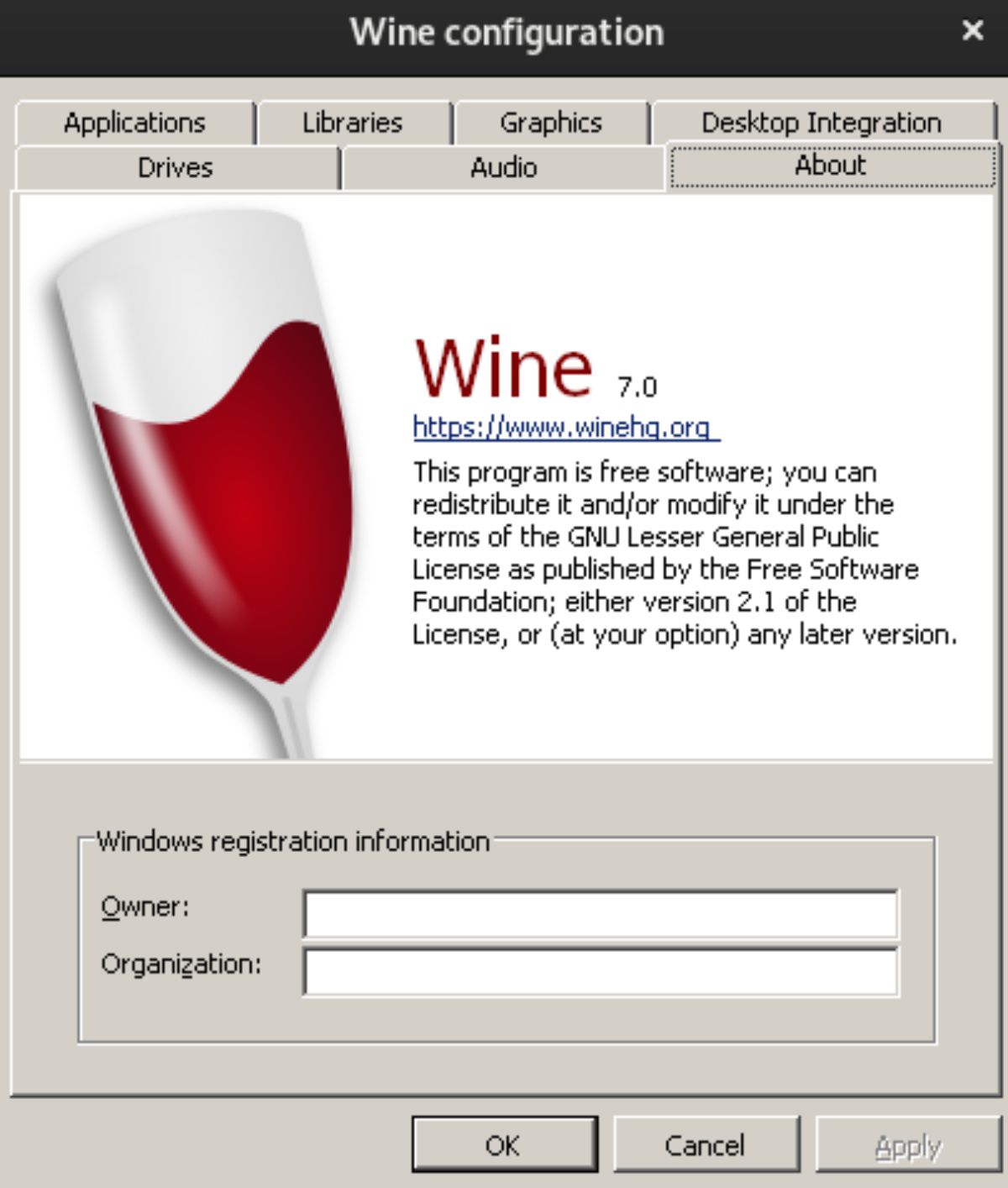There is currently no Wine 7 version available for Linux. Wine is a compatibility layer that allows running Windows applications on Linux, macOS, and other Unix-like operating systems.
The latest stable version of Wine as of September 2021 is Wine 6.0. However, development versions of Wine, known as “Wine Staging,” may have newer features and improvements. Wine Staging 7.x might be a future version of Wine, but it is not currently available. Wine has become a popular tool for Linux users who need to run Windows software on their systems without using a virtual machine or dual-boot setup. It is free and open-source software and supports a wide range of Windows applications, including games, productivity software, and more.
Install and Use Wine 7 on Linux
As a Linux user, you may have encountered some software that is not available for your operating system. Wine is a software that allows you to run Windows applications on Linux. With the release of Wine 7, it is now easier than ever to install and use this software on your Linux machine. In this article, we will guide you through the process of installing and using Wine 7 on Linux.
Table of Contents
- Introduction
- Requirements for Installing Wine 7
- Installation of Wine 7 on Linux
- Running Windows Applications with Wine 7
- Troubleshooting Wine 7
- Conclusion
- FAQs
1. Introduction
Wine is a free and open-source compatibility layer that allows you to run Windows applications on Linux, macOS, and other Unix-like operating systems. Wine 7 is the latest stable release of this software and comes with several improvements and bug fixes.
Using Wine 7, you can run many popular Windows applications on Linux, including Microsoft Office, Adobe Photoshop, and many others. In this article, we will guide you through the process of installing and using Wine 7 on Linux.
2. Requirements for Installing Wine 7
Before we can install Wine 7 on Linux, we need to make sure that our system meets the following requirements:
- A Linux distribution with a package manager, such as Ubuntu, Debian, Fedora, or CentOS.
- A 64-bit operating system.
- At least 2 GB of RAM.
- At least 10 GB of free disk space.
If your system meets these requirements, we can proceed with the installation of Wine 7 on Linux.
3. Installation of Wine 7 on Linux
The process of installing Wine 7 on Linux varies depending on the Linux distribution you are using. In this section, we will cover the installation process for Ubuntu, Debian, Fedora, and CentOS.
3.1 Installing Wine 7 on Ubuntu
To install Wine 7 on Ubuntu, you can use the following commands:
sudo dpkg –add-architecture i386 wget -nc https://dl.winehq.org/wine-builds/winehq.key sudo apt-key add winehq.key sudo add-apt-repository ‘deb https://dl.winehq.org/wine-builds/ubuntu/ focal main’ sudo apt update sudo apt install –install-recommends winehq-stable
3.2 Installing Wine 7 on Debian
To install Wine 7 on Debian, you can use the following commands:
sudo dpkg –add-architecture i386 wget -nc https://dl.winehq.org/wine-builds/winehq.key sudo apt-key add winehq.key sudo apt-add-repository ‘deb https://dl.winehq.org/wine-builds/debian/ bullseye main’ sudo apt update sudo apt install –install-recommends winehq-stable
3.3 Installing Wine 7 on Fedora
To install Wine 7 on Fedora, you can use the following commands:
sudo dnf config-manager –add-repo https://dl.winehq.org/wine-builds/fedora/35/winehq.repo sudo dnf install winehq-stable
3.4 Installing Wine 7 on CentOS
To install Wine 7 on CentOS, you can use the following commands:
sudo dnf install epel-release sudo dnf config-manager –set-enabled PowerTools sudo dnf config-manager –add-repo https://dl.winehq.org/wine-builds/centos/7/wineh
Conclusion
Wine is a popular compatibility layer that allows users to run Windows applications on Linux and other Unix-like operating systems. While there is no current version of Wine 7 available, the latest stable version, Wine 6.0, and development versions like Wine Staging offer a range of features and improvements. Wine has become a valuable tool for Linux users who need to access Windows software and applications without running a virtual machine or using a dual-boot setup. Its open-source nature and compatibility with a wide range of software make it a powerful tool for Linux users seeking to expand their computing options.

